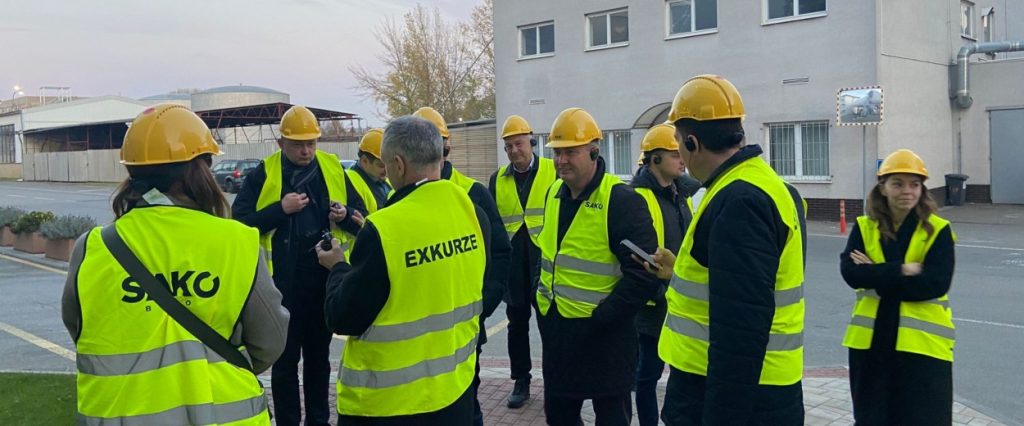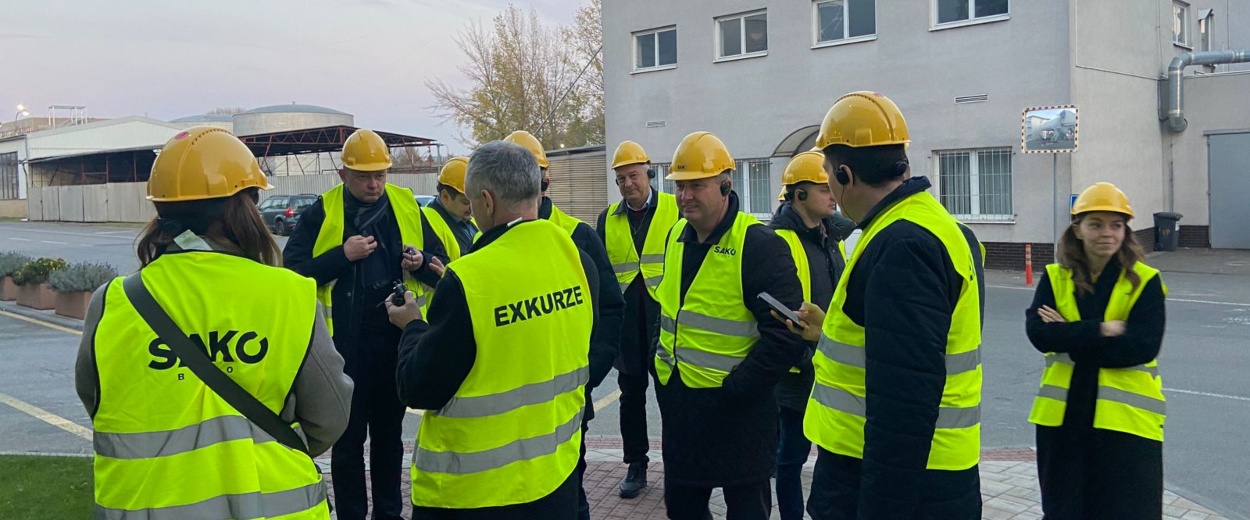Specific steps for the development of the Lviv agglomeration. For the project to be successful and help rebuild Ukraine and implement best practices, community representatives adopted the experience of the Brno metropolis (an agglomeration that the Czech city forms with 184 neighboring communities). Cooperation with the Czech metropolis is aimed at gaining valuable European-level experience. In particular, in terms of
how communities in the metropolis coordinate common interests;
what is their experience in developing a common strategy;
how the integrated transport system of the Brno metropolitan area works;
how communities jointly solve the problem of garbage;
how the EU supports the development of metropolitan areas through integrated territorial investments.
We are gaining Ukrainian agglomeration experience faster than our European colleagues, and Lviv agglomeration is a leader here. Therefore, we have to study their best practices and apply borrowings. “We see that so many projects have been implemented through their metropolis. Any member of the agglomeration who wants to do something can take advantage of the big priorities. We believe that the war will end in victory, and Ukraine will be in the EU. Then, I hope, more aid will be directed to such agglomerations and joint plans that will have a general principle rather than a specific one. For example, I am interested in railroad transportation within the Czech agglomeration,” said Velykolyubinska Hromada head Josyf Fabryga.
“The Brno metropolis impressed me. We are following a similar path, although perhaps in some things we are even a few steps ahead. After all, we do not have time for slow development, we are moving faster. The Czechs have a very interesting project approach, and we can take a lot from them – a lot of the best. For example, there are organizations that sell the products of the population (vegetables, fruits, etc.) to the city of Brno – such sales can be realized in our city,” said Bohdan Stakhiv, Deputy Chairman of Kulykiv.

It is time to study specific projects that will improve the lives of residents of the Lviv agglomeration communities. For example, the work of the Brno Metropolitan Waste Recycling and Utilization Center is interesting, as the topic of waste is important for our region as well. By the way, waste is sorted and incinerated at 4 such complexes in the Czech Republic, which means that one of them serves an area the size of the entire Lviv region. “The most important thing is the practical experience that can improve the lives of people in our communities, both in Lviv and in the surrounding communities. And our task is to implement this experience. This will benefit all residents of our agglomeration. The most important project is definitely solid waste management. This is the number one problem of every community. This is a big project, we need to work on it together and implement it as quickly as possible,” said Petro Sokolovskyy, head of the Novoyarychivska community.
“Such metropolitan projects in the Czech Republic and other countries are supported by the EU, and our communities also count on such support in the future. Therefore, it was useful to learn details about the work of Central European metropolitan areas and the Interreg CE project, which shares best practices in agglomeration in five partner countries.
Meanwhile, the mayors of small communities in the Brno metropolitan area were interested in how local government functions and how intermunicipal cooperation is carried out in Ukraine. After all, the reform of decentralization and territorial organization of power in Ukraine is one of the most successful in Europe and in many ways more perfect, because our communities have more powers. Agglomeration will multiply these opportunities. And this should be facilitated by the implementation of the projects envisaged in its strategy. Instead, there are many small communities in the Czech Republic, one might say, fragmented. But this does not prevent them from cooperating effectively. “The projects they implement are joint, comprehensive for the entire metropolis. And this is important to us because we have a large and wide agglomeration. The Czech experience shows that it is possible to overcome difficulties together. I can highlight the fact that they started with transportation, accessibility and mobility of people. We talked about this more at the first agglomeration forum in Lviv. So I think we should also take this tactic as a basis,” said Oleh Volskyy, head of the Zhovkva community, about his vision.
On the topic, the experience of building the transport system of the Brno metropolis will be useful in the Lviv region. “We see the successful development of the Brno metropolis, which has been operating since 2014. The key project, in my opinion, that we can implement in our country is transport. At the beginning of its creation, the Czech metropolis had the same problem that we have – that is, getting residents from a radius of 20-30 km around Brno. We have the same difficulties. Therefore, first of all, we need to use their experience in using rail transport, bus routes, as well as laying bike paths and new tram routes. Therefore, I believe that transport should be a key, first stage in the development of the Lviv agglomeration. Therefore, the first thing we will do after returning is to call representatives of Ukrzaliznytsia to a meeting. After all, we have just heard how, at the beginning of the metropolis in Brno, railway stations were restored around the city – in adjacent settlements, as well as in Brno itself. Especially since we have a well-branched railway track, and it would be a sin not to use it for communication within the Lviv agglomeration. And this will also be the project that will allow us to show a positive result and attract new participants to the Lviv agglomeration,” is sure of the acting director of the economic policy department of the Lviv regional military administration Orest Hryniv. The head of Bibrka, Roman Hrynus, also mentioned the not-so-great communication in the Lviv agglomeration: “The main thing is for the state to support the communities and the metropolis – and everything will be fine. Of course, everything is going to war now. The existence of communities in agglomerations – whether in Poland or the Czech Republic – is successful. Of course, we lack the funds that the metropolises in the EU have.” The EU supports them through the integrated investment mechanism, because there is an understanding that joint metropolitan projects will allow funds to be used more efficiently and increase the economic development of the state. We should also think about introducing such mechanisms.
Brno’s Czech experience will be carefully analyzed in working commissions in the Lviv agglomeration. And soon the knowledge acquired in the EU will be implemented in development projects. And the first points of contact are already there. For example, the ecological project “Holasek Lakes” resonates with the initiatives that exist in the Lviv agglomeration regarding Lake Shchyretsky and the Hamaliiv Reservoir. Taking this into account, it was agreed to look for opportunities to implement these similar projects together.
The exchange of experience was organized by the Council of Europe Programme “Strengthening Good Democratic Governance and Resilience in Ukraine” in partnership with the ITI Management and Metropolitan Cooperation Department and the Department of Strategic Development and Cooperation of the Brno Municipality.


